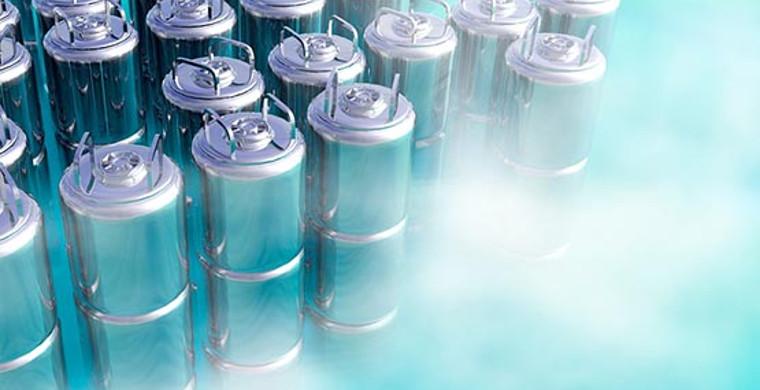Evidence of resurrection and Cryogenics
By Gavin Ashenden
Special to VIRTUEONLINE
www.virtueonline.org
November 24, 2016
"She is called patient '143'. All we know of her is that she was 14, and has just died from cancer; that her mother hated her father and had not let him see her since she was 7; that her parents clashed in a court case in London to test the legality of her last early-teen wish, - to have her body frozen at the cost of $35,000.
Her father was distraught that her death would be overshadowed by the cryotechnology technicians fussing over her dying body. They were preparing it to be drained of blood and fluid within seconds of her biological death. Her mother and her grandparents who footed the bill just wanted to respect her wishes.
'143' was understandably frightened and horrified by the prospect of death. She wrote to the judge: "I think being cryo-preserved gives me a chance to be cured and woken up in hundreds of years time.... I want to have this chance."
We don't know how she stumbled on this project, but the science is more than ropey. RationalWiki calls it 'pseudo-science'.
Looking to fix the damage caused by freezing the brain it comments, "The dendrites (10,000 connections for each of the 100 billion neurons -- that's 1015 dendrites to check) are cracked badly by the freezing process -- like when you drop an ice cube into a drink. What is the process for fixing a frozen brain that's cracked into several, or hundreds of pieces, with dendrites shattered at a microscopic level?"
And a little grown up experience of the world might well wonder if the business that freezes the bodies in Michigan in 2016 will be running in 2050, let alone 2150?
Then, if science really was able to both cure cancer and resuscitate corpses, what does that do to an overcrowded planet already running out of resources where death is the only mechanism for making space for the incoming babies and diluting the population explosion?
But patient 143 was looking to pseudoscience because it was all she had to hang on to facing the awful fear of extinction.
So is there any evidence for life after death?
In fact there is. Start with Plato, writing The Republic 2,400 years ago. He recorded an incident he had come across. A Pamphylian soldier called 'Er', son of Armenious, is involved in a battle, and appears to have been killed. His body is heaped onto an enormous funeral pyre, and just as it is being set alight ten days later, he comes to, or revives- who knows what- and tells everyone he has been in the land of the dead. He saw openings in the ground and the sky. Everyone was judged at death. The immoral were sent down, the good- up. He was sent back to warn people.
Actually it is very similar to something Jesus taught in the New Testament (the sheep and the goats-Matthew 25).
Plato might just be telling a story, but it shocked me when I read it, because something similar happened to me. When I was 19 I drunk a litre of vodka in an evening of stupidity, which dampened down my respiratory system. I seemed to leave my body, met 'God', was judged, forgiven and sent back, reviving at dawn- free of any symptoms of alcohol poisoning. It was an experience that prepared me, a little after, for taking the claims of Jesus more seriously that I might otherwise have done.
These 'Near Death Experiences' it turns out, are quite common. The psychiatrist Raymond Moody collected many in his book Life after Life. The Near Death Experience Research Foundation (NDERF.org) contains thousands of recent accounts on line.
Christianity only came into being because thousands of people believed they saw Christ with their own eyes, resurrected from the dead. It only continues because in each generation people become convinced by the evidence it really happened.
It's such a shame that patient 143 never had a vicar visit her assembly at primary school. He would have told her that Jesus died on the cross for her forgiveness, and then rose from the dead to give her life after death.
'Mindfulness' and deep breathing are now the fashion at many school assemblies, and very useful too; but it seems a little unkind and unfair to deprive children of the information that there are good reasons for believing biological death is not the end. Come to think of it- it's not just our children who might be cheered by what some of us call the 'Good News'. The Michigan cryogenetics company may not be quite so chuffed."
The Rev. Canon Dr. Gavin Ashenden was trained at Oak Hill Theological College later becoming Senior Lecturer in the Psychology of Religion at Sussex University. He is a Chaplain to the Queen and from 2008-2016 was a Canon Theologian at Chichester Cathedral. As a broadcaster he hosted a BBC Religion and Ethics show for 4 years (2008-2012) which had 100,000 listeners across the South East of England, and presented the BBC podcast on Religion and Ethics. He is the author of a number of books and essays on the Oxford Inklings.














